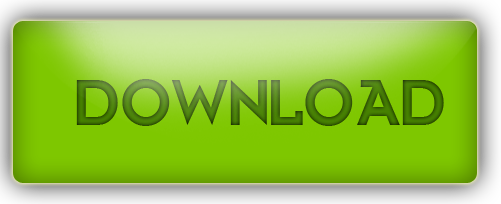Apple Mac OS X 10.9.4 Mavericks ESD DMG by Apple Inc. Publication date 2014-06-30 Topics apple, mac, osx. Apple Mac OS X 10.9.4 Mavericks - ESD DMG Addeddate 2019-05-10 13:31:29 Identifier OSXMavericksESD Scanner Internet Archive HTML5 Uploader. Before you upgrade, we recommend that you back up your Mac. If your Mac is running OS X Mavericks 10.9 or later, you can upgrade directly to macOS Big Sur. You'll need the following: OS X 10.9 or later; 4GB of memory; 35.5GB available storage on macOS Sierra or later. Some features require an Apple ID; terms apply.
Apple has released OS X 10.9 Mavericks, and somewhat surprisingly it is a free upgrade for all existing OS X users. If you're using a Mac laptop or desktop from the last five years or so, you should be able to download OS X Mavericks for free just by visiting the Mac App Store. Some exclusions and caveats do apply, though, so read on for more information.
Mac Os X Lion Upgrade To Mavericks
Mavericks; Mountain Lion; Home. Mac OS X Download. Download Mac OS X Lion. Mac OS X Download. Download Mac OS X Lion. Apple released Mac OS X Lion on July 20, 2011, the eighth major release of the world's most advanced operating system with more than 250 new features, is available today as a download from the Mac App Store. If you have Snow Leopard, Lion, or Mountain Lion installed (10.6, 10.7, 10.8), upgrading to 10.9 Mavericks is as simple as heading to the Mac App Store, clicking the huge OS X Mavericks banner. Install Lion Through Yosemite on a New HDD/SDD Be sure you backup your files if possible. Restart the computer and after the chime press and hold down the COMMAND-OPTION- R keys until a globe appears.
Downloading and installing OS X 10.9 Mavericks for free
Before you upgrade to OS X 10.9 for free, the most important question is whether your Mac hardware is compatible. In general, if you're already running OS X 10.6 Snow Leopard, you should be able to install Mavericks. Here's a complete list of Mac laptops and desktops compatible with OS X 10.9 Mavericks:
- MacBook Pro (mid/late 2007 and newer)
- MacBook Air (late 2008 and newer)
- iMac (mid 2007 and newer)
- MacBook (late 2008 aluminium, or early 2009 and newer)
- Mac Mini (early 2009 and newer)
- Mac Pro (early 2008 and newer)
- Xserve (early 2009)
Before you begin the upgrade process, you should save and close any open programs. If you're upgrading some older Mac hardware, you might also find it useful to clear up your hard drive first, by uninstalling unused apps, transferring large files to external storage, and using a clean-up tool such as CCleaner.
If you have Snow Leopard, Lion, or Mountain Lion installed (10.6, 10.7, 10.8), upgrading to 10.9 Mavericks is as simple as heading to the Mac App Store, clicking the huge OS X Mavericks banner, and clicking 'Install.' It will download the update (which is around 5GB), and then ask whether you want to begin the installation process. Once you begin the installation, that's it: It's a one-step installer without any 'next' buttons.
For me, on a fairly bogged-down 2011 MacBook Pro, the free upgrade to OS X Mavericks took around 90 minutes. On a newer and fresher systems, it should be a lot faster.
After installing OS X Mavericks…
Once the installation process is complete, a notification will pop up offering to teach you about Mavericks' new features. You should probably click it, especially if you're coming from Snow Leopard or Lion as quite a lot has changed. The most exciting new features in Mavericks are probably the iCloud Keychain, Notifications tweaks, and some cool low-level tech that should improve battery life and performance (Timer Coalescing, App Nap, and Memory Compression). If you've always wished for iBooks, Maps, and Calendar to make the leap from iOS to your Mac, you're in luck, too.
If you have any problems upgrading, or you want to draw our attention to an interesting new feature (or bug), leave a comment.
Now read: Is the core of Apple's OS X rotting from within?
Yes, when Mavericks is released. Your computer must meet the requirements to run Mountain Lion.
OS X Mountain Lion - System Requirements
Macs that can be upgraded to OS X Mountain Lion
1. iMac (Mid 2007 or newer) - Model Identifier 7,1 or later

2. MacBook (Late 2008 Aluminum, or Early 2009 or newer) - Model Identifier 5,1 or later
3. MacBook Pro (Mid/Late 2007 or newer) - Model Identifier 3,1 or later
4. MacBook Air (Late 2008 or newer) - Model Identifier 2,1 or later
5. Mac mini (Early 2009 or newer) - Model Identifier 3,1 or later
6. Mac Pro (Early 2008 or newer) - Model Identifier 3,1 or later
7. Xserve (Early 2009) - Model Identifier 3,1 or later

2. MacBook (Late 2008 Aluminum, or Early 2009 or newer) - Model Identifier 5,1 or later
3. MacBook Pro (Mid/Late 2007 or newer) - Model Identifier 3,1 or later
4. MacBook Air (Late 2008 or newer) - Model Identifier 2,1 or later
5. Mac mini (Early 2009 or newer) - Model Identifier 3,1 or later
6. Mac Pro (Early 2008 or newer) - Model Identifier 3,1 or later
7. Xserve (Early 2009) - Model Identifier 3,1 or later
Mac Os X Mavericks Installer
To find the model identifier open System Profiler in the Utilities folder. It's displayed in the panel on the right.
Mac Os X Lion Download
Sep 10, 2013 10:23 PM
